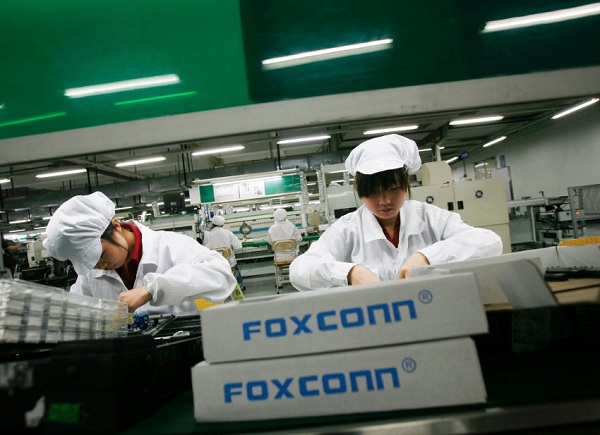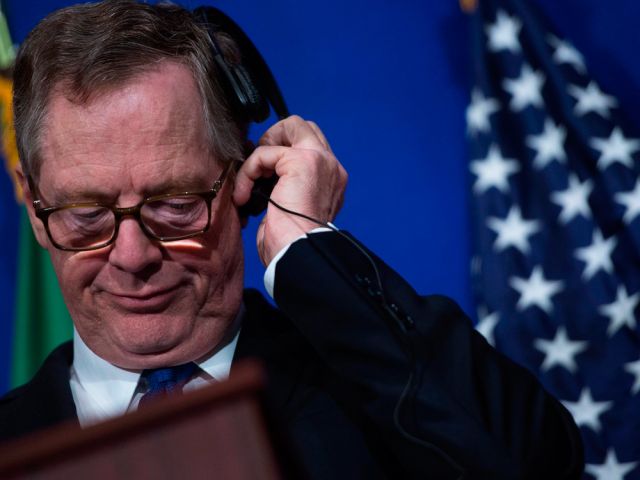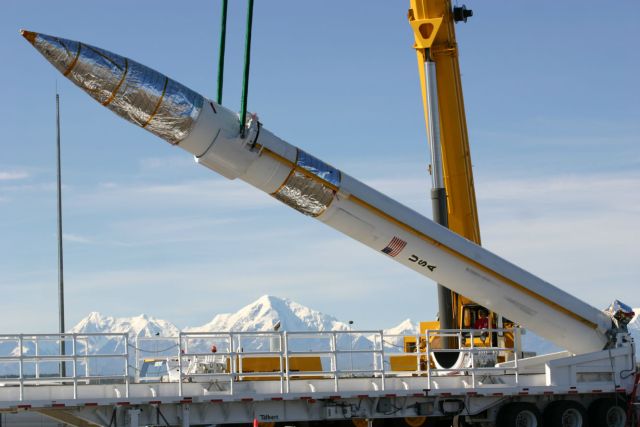
by admin | May 25, 2021 | World

Foxconn
Chicago : Tech giant Foxconn is facing some legal obstacles concerning its planned display screen plant in the midwest US state of Wisconsin, as some villagers opposed to what they called “unconstitutional eminent domain.”
A dozen families who would lose their homes to the Foxconn project have filed a federal civil rights lawsuit this week against the Village of Mount Pleasant and its president, reported Milwaukee Journal Sentinel.
The lawsuit claims Mount Pleasant’s exercise of eminent domain to take their homes is unconstitutional because it is for a private benefit instead of public use, and the plantiffs would be paid far less than similar cases, Xinhua reported.
Wisconsin state government and Foxconn signed a contract for the display screen plant worth $10 billion in November. Foxconn is expected to hire up to 13,000 local workers and Wisconsin has promised to update infrastructure and offered a basket of incentives.
As part of its development agreement with Foxconn, Mount Pleasant village agreed to acquire about 2,900 acres, some directly for Foxconn and some for possible future expansion. Some also were for planned road and utility expansions, traditional public goals of the power of eminent domain.
Following the controversy over parts of the land being forcibly taken from their owners, Foxconn has agreed to give more time to solve the issue, the Milwaukee newspaper reported.
—IANS

by admin | May 25, 2021 | Business, Large Enterprise, World

Robert Lighthizer
Ottawa : Canada has “thrown a grenade” at the US filing a complaint with the World Trade Organisation (WTO) against its southern neighbour’s use of trade sanctions, which might wreck their current North American Free Trade Agreement (NAFTA) negotiations, said an international trade law expert.
“The odds are increasing that the United States might withdraw from NAFTA, which I’ve been of the view that it would be unlikely to do,” said Mark Warner, who runs MAAW Law, an international business and regulatory law firm in Toronto and New York City, in an interview, Xinhua reported on Friday.
The WTO revealed on Wednesday that Canada had filed a complaint last month accusing the US of unfairly imposing countervailing and anti-dumping duties, not only on Canadian softwood lumber but also on goods from many other countries.
In a statement, US Trade Representative Robert Lighthizer pushed back against Canada’s case against the US, warning that Canada’s “request for consultations at the WTO is a broad and ill-advised attack on the US trade remedies system”.
It also might result in a flood of imports from other countries — if the complaint successfully have American tariffs removed — and cost Canada billions of dollars in exports to the US, Lighthizer said.
Warner believes that the Canadian government may be playing to a domestic audience in demonstrating that it is not only being “very assertive” in addressing trade disputes, but that it is also trying to “embarrass the Americans” before the world by citing almost 180 trade breaches over two decades against other countries listed on 24 pages of Canada’s 32-page complaint before the WTO.
However, Canada’s strategy is “particularly unwise”, Warner told Xinhua.
He said that during the current NAFTA negotiations, which enter the sixth round in Canada later this month, the US has made it clear that it wants to remove a dispute-resolution mechanism for anti-dumping and countervailing cases under Chapter 19 of the 24-year-old trilateral trade agreement.
“If Canada loses Chapter 19, it would have to go to the WTO,” said Warner.
However, he explained that US President Donald Trump’s administration “dislikes” the WTO’s dispute-settlement body and believes that countries rely on it “inappropriately to achieve results they can’t achieve through negotiations”.
Yet while “the rest of the world is trying to keep the US engaged in that dispute-settlement system”, Canada’s generic complaint against the United States is “counterproductive”, said Warner.
—IANS

by admin | May 25, 2021 | Business, Investing, Large Enterprise
 Washington : Japanese automakers Toyota and Mazda have announced an investment of $1.6 billion for their new joint manufacturing plant in US state of Alabama.
Washington : Japanese automakers Toyota and Mazda have announced an investment of $1.6 billion for their new joint manufacturing plant in US state of Alabama.
The plant, to be built in the city of Huntsville, is expected to open in 2021 and is capable of making 300,000 cars a year while creating up to 4,000 jobs, the two companies said on Wednesday, Xinhua news agency reported.
Akio Toyoda, President of Toyota Motor Corp., said he was confident that the plant would be a “built-in-America success story”.
The joint plant will be the company’s 11th US manufacturing facility and represents its continued commitment in the country.
Alabama Governor Kay Ivey noted that the two companies’ plan “will expand innovative automotive manufacturing,” adding that “We are proud that this partnership puts Alabama on the forefront of technology in this dynamic global industry.”
Alabama is the fifth largest producer of cars and light trucks in the US. With more than 150 Tier one and two automotive suppliers as well as automakers, there are approximately 57,000 automotive manufacturing jobs in the state.
The two Japanese automakers announced in August that they would build a new joint plant in the US. In the fall out of the announcement,about a dozen of US states were in hot pursuit to win the project.
Toyota said the new plant had nothing to do with pressure from US President Donald Trump, who criticized the automaker in January last year for setting up a new plant in Mexico to make cars for the North American market.
—IANS

by admin | May 25, 2021 | World
 Washington : The US has approved the sale of missiles worth $133.3 million to Japan, saying it will serve to reinforce the Asian country’s defence against the ballistic missile threat from North Korea.
Washington : The US has approved the sale of missiles worth $133.3 million to Japan, saying it will serve to reinforce the Asian country’s defence against the ballistic missile threat from North Korea.
The consignment, which must still be approved by the US Congress, includes the sales of four missiles for the SM-3 interceptor Block IIA system and four MK29 launchers, in addition to the provision of technical and operational support by the US, Efe news reported.
The sale would also “follow through on President Donald Trump’s commitment to provide additional defensive capabilities to treaty allies” threatened by North Korea’s “provocative behaviour”, a State Department official said in a statement on Tuesday.
According to the statement, Japan will be able to strengthen its missile defence system with these weapons and the security of the US facilities in the region will thus also be increased.
According to the latest official data released by the US State Department, in 2016, the Congress authorised the sale of weapons to Japan worth $7.995 billion.
—IANS

by admin | May 25, 2021 | Opinions
 By Lt. Gen. Kamal Davar (retd),
By Lt. Gen. Kamal Davar (retd),
With the call that “America is in the game and America is going to win”, strongly reminiscent of his populist campaign speeches, US President Donald Trump launched his first National Strategic Security (NSS) policy document on December 18, 2017. He categorised his ambitions for the US based on “principled realism” to be propelled by the “re-awakening of America”.
That Trump’s NSS was shorn of any diplomatic finesse and loaded with maximalist rhetorical stirrings for his nation was, to say the least, on expected lines.
Throwing to the winds previous President Barak Obama’s cautious American foreign and economic policies, including withdrawing from earlier US internationally agreed upon commitments to combat climate change, Trump’s macho exhortations did not find much resonance even among many centre-of-the road American politicians and strategic analysts.
The strategy document, which every US president is required by law to produce, lays down the administration’s foreign, security and economic policies. Though normally the US Secretary of State introduces the document, Trump broke with tradition to personally enunciate his future strategies.
He unleashed his priorities for the coming years based on his “whole of government approach” which stresses the “economic and military might” of the US to further America’s national strategic objectives. That, currently, the US is financially fatigued and even militarily weary and stretched, according to its own analysts, is another story.
Trump outlined his NSS based on four pillars — protecting the homeland, promoting prosperity, peace through strength, and accelerating US influence globally. Terming China and Russia as “revisionist powers”, he called upon the US military to augment its capabilities, reiterating that “our rivals are tough, they are tenacious and committed to the long term, but so are we”.
He cautioned China on its growing assertiveness in the Indo-Pacific region while mildly chiding it for its One-Belt-One-Road initiative, exclaiming that though the country “presents its ambitions as mutually beneficial, China’s dominance risks diminishing the sovereignty of many states in the Indo-Pacific”. The NSS document categorically castigates China that it “seeks to displace the US in the Indo-Pacific region, expand the reaches of its state-driven economic model, and re-order the region in its favour”. That the US has not done much, physically, to check the Chinese in the choppy waters of the Indo-Pacific is a harsh reality.
Trump also alluded to the “unfair” trade practices adopted by China while also seeking its cooperation to keep North Korea’s dangerously errant nuclear ambitions in check. That North Korea has got away-so far — with its nuclear blackmail in the region and even threatening the US — is a sad commentary of the times when possession of nuclear weapons, even by nations otherwise starved of basic necessities, has emerged as the final arbiter of one’s ultimate status in the world.
In his geo-political projections, Trump was, perhaps, unfair to Russia, portraying it as a global rival stating that Moscow “seeks to restore its great power status and establish spheres of influence near its borders”, alluding to Ukraine and Crimea.
This assessment will hardly be welcome to India, which has been looking for rapprochement between the US and Russia in the South Asia region, especially in Afghanistan and Iran, to counter the ever-growing Pakistan-China nexus. It would be fair to also assume that notwithstanding Indian sensitivities, even its decades-old partner, Russia, is searching for newer alliances in the region.
The NSS document, however, would be music to Indian ears, as it terms this country a “leading global power” while also seeking larger Indian assistance in South Asia. The US called for stronger strategic and defence partnership with India.
As done many times in the past, without much success though, the NSS warned Pakistan to refrain from its assistance to terrorists in the region, stating that the US sought a “Pakistan that is not engaged in destabilising behaviour and a stable and self-reliant Afghanistan”.
Additionally, Trump also said that “we have made it clear to Pakistan that while we desire a continued partnership, we must see decisive action against terrorist groups operating on their territory. And we make massive payments every year to Pakistan. They have to help”. That any such exhortations to Pakistan will ever help decreasing terrorism in the region is a moot point which the US acknowledges but, off and on, persists with its policy of appeasing its one-time protégé, an aspect which needs to be critically factored by the Indian security establishment.
Notwithstanding the shrill rhetoric of Trump’s call to his nation, only time will tell if his articulation gets translated into reality — some of it definitely fraught with additional dangers to global peace. As India gets inexorably closer to its “strategic partner”, it will be worthwhile for it to never forget the simple rule in global geopolitics — that for a nation of its values, size, global and regional influence there is immense wisdom in maintaining “strategic autonomy” and being ever-prepared to fight its own battles.
(Lt. Gen. Kamal Davar (retd) was founder of India’s Defence Intelligence Agency and is currently President, Delhi Forum For Strategic Studies. The article is in special arrangement with South Asia Monitor)
—IANS





